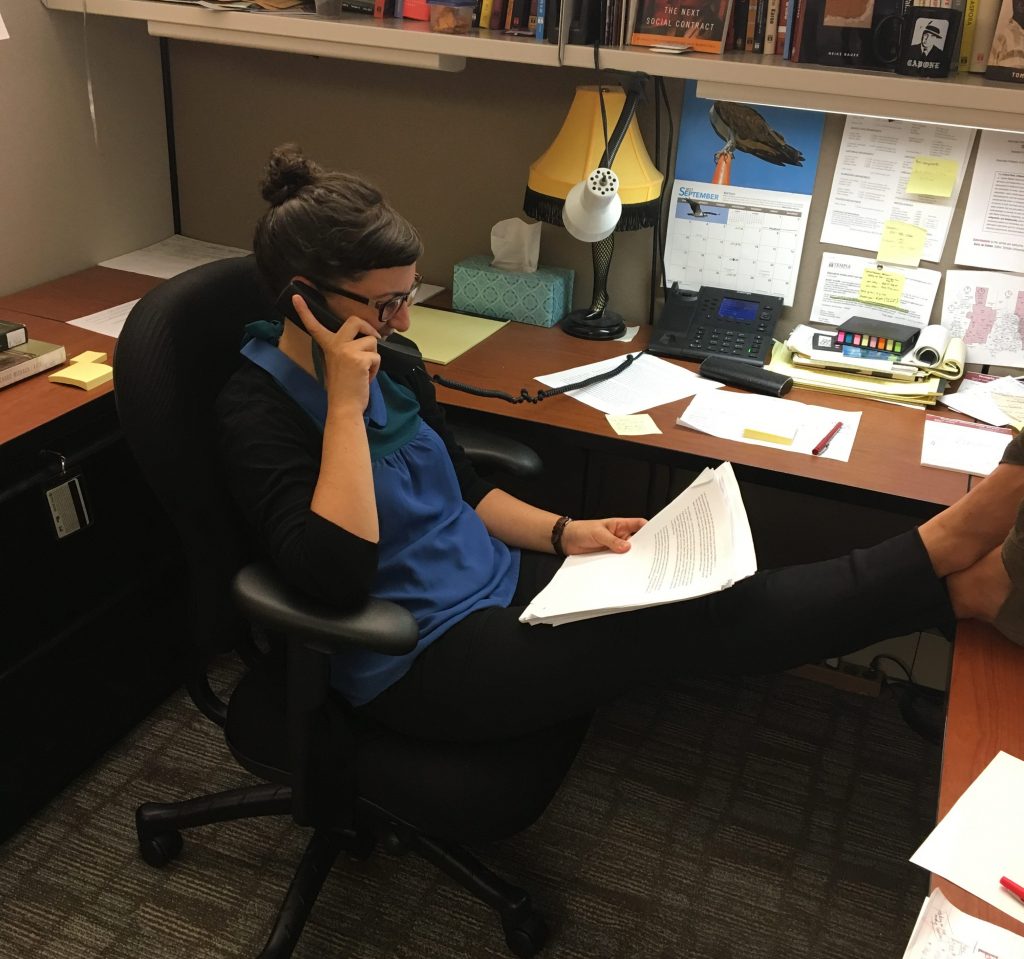Photograph courtesy of Nikki Miller.
The following is a guest post from Sara Cohen, Editor at Temple University Press.
Confession: when I interviewed for my first job as an acquisitions assistant six years ago, I had no idea what acquisitions editors do—I just knew I wanted to work in scholarly publishing and that a job as an editorial assistant would be my entrée into that world. I was fortunate enough to get a job offer despite my ignorance, likely based on my chops as a reader, writer, and researcher, honed in an English PhD program.
Since then, I’ve learned a lot about what acquisitions editors do and who they are.
Acquisitions editors are your first point of contact at a press. We’re the folks who read book proposals and decide whether to accept or reject them.
Acquisitions editors are the bespectacled people hanging around the book exhibit areas of conferences. We have specific list areas for which we’re responsible, and we attend conferences that are related to those areas. Having specific list areas allows us to focus our energies on certain kinds of projects (reading particular journals and attending particular conferences). We’re not experts in our acquisitions areas, but we have a strong sense of who’s who in them and what kinds of work is being done.
In terms of comparisons to other jobs, I think of our job as part talent scout, part project manager, part midwife.
We search for exciting new projects—we read journal articles and conference programs, we attend conferences, visit campuses, make lots of phone calls and send lots of email—and court the authors working on them.
We manage the peer review process—looking for readers and sending manuscripts out to them—and work with authors to develop revision plans based on the readers’ reports. We also make sure that projects arrive [relatively] on time, and then we help move them through our production and marketing processes.
Perhaps the most satisfying part of our job is supporting authors while their books are being written, helping them bring a good book into the world. This part of the job requires a fair amount of emotional labor, particularly in the maintenance of strong author/editor relationships.
As with any relationship, the author/editor relationship works best when it’s based on mutual trust and open communication. I expect my authors to be open with me about any questions they have or any challenges they’re facing; my authors expect me to be open with them about where their manuscript is in the review and production processes. My authors also expect me to give honest, constructive criticism—and I expect them to take it gracefully. My favorite authors are those who take their work seriously, but who don’t take themselves too seriously.
Basically, as I recently told my two-year-old son, my job is to help people write their books, and I feel incredibly lucky to have such a fun and intellectually challenging job.
